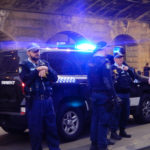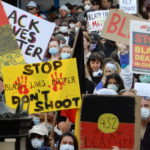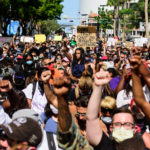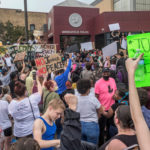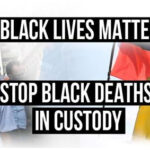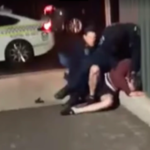First Nations Rainbow Condemns Police Violence: An Interview With Co-Chair Ricky Macourt
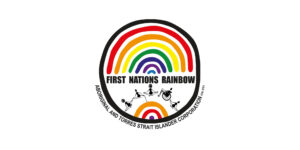
Despite a myriad of roadblocks that were placed in its way, the 6 June Sydney Black Lives Matter rally took place with legal approval and without a hitch. At least, that was before some NSW police officers decided to pepper spray a group of demonstrators in an enclosed space.
Following the police violence incident, First Nations Rainbow and the 78ers released a joint statement condemning the excessive force officers unleashed upon the mainly young crowd they’d herded into the lower concourse at Central Station.
“These people were forced in upon themselves with no regard for the social distancing that the police claimed to be upholding,” the 24 June statement reads. “The result was panic and outraged resistance – exactly the response that the police had intended to provoke.”
The LGBTIQ groups further made clear that while the protest that highlighted the “lethal racism” First Nations people are often confronted with “proceeded without incident”, the actions of police further compounded the trauma and injustice that the event was calling to end.
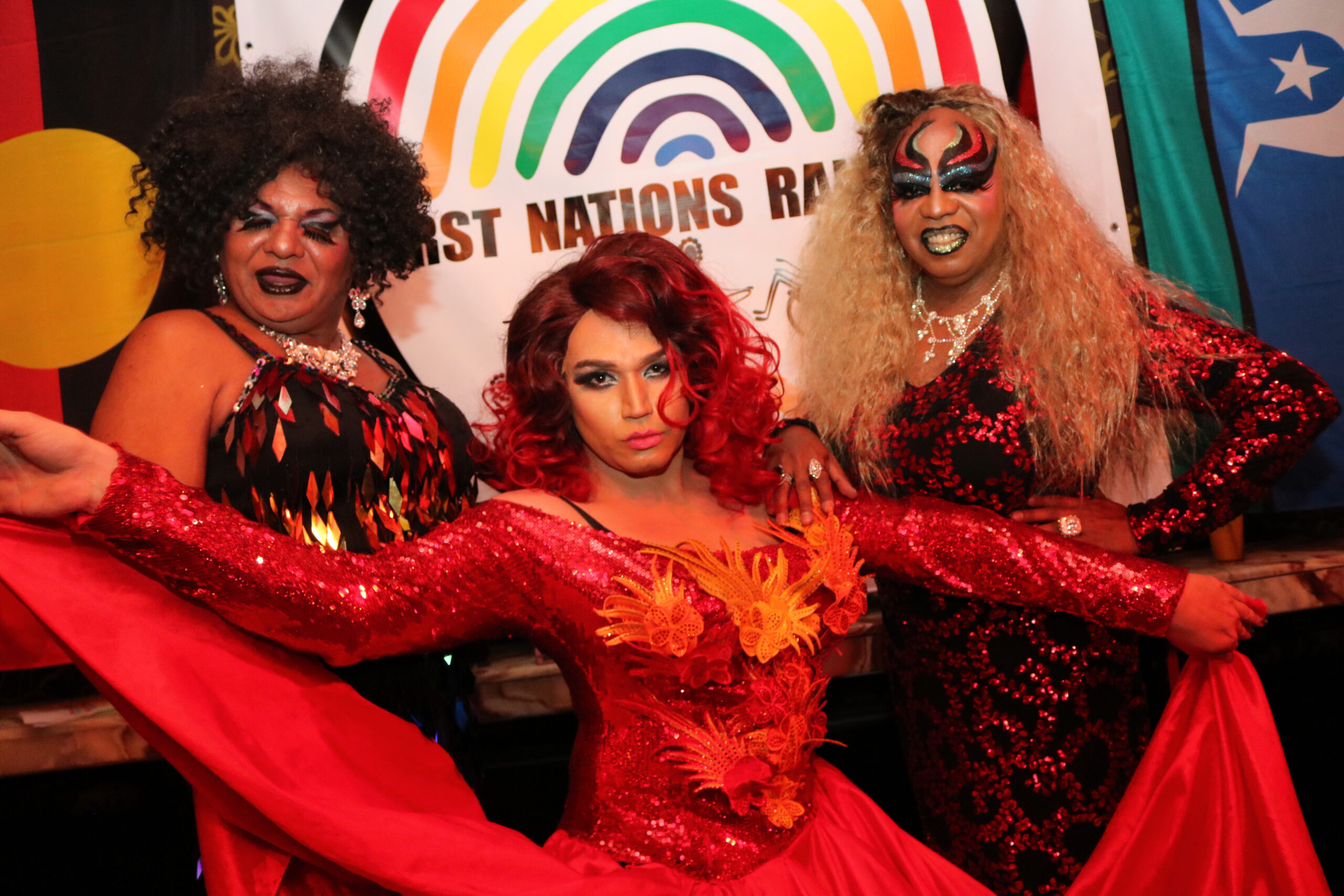
The Central Station incident
The Black Lives Matter march finished at Sydney’s Belmore Park. The road in between it and Central Station – Eddy Avenue – had been blocked to allow the crowd to disperse. And not too long after most demonstrators had left, some young protesters commenced marching down the street.
This led a group of NSW police officers to set upon them and kettle them into the lower concourse of Central Station. They were then forced through the ticket turnstiles and into a confined space next to the stairwells leading up to the platforms.
At that point, the protesters decided to sit upon the ground, while a few of them gave speeches. And when they eventually stood back up to leave, they noticed the staircases had been blocked, and officers subsequently let them have it with their pepper spray.
An eyewitness later explained that as the police let fly with their chemical weapons, the stairwells were reopened and those in the firing range raced up to the platforms. The young man recalls that for the next few hours he was caught up taking care of those who’d been hit by the orange spray.
Forging community
First Nations Rainbow provides an accepting environment for Aboriginal and Torres Strait Islander people who identify “as brother boys, sister girls, gay, lesbian, bisexual, trans, intersex, queer or who are questioning their sexuality or gender identity”.
The group was co-founded by Yorta Yorta man Russell Weston in mid-2018. And he co-chairs the organisation, along with young queer Gumbaynggirr man Ricky Macourt, who represented Australia at the UN World Conference on Indigenous Peoples.
Sydney Criminal Lawyers spoke to Macourt about his thoughts on the policing of the Black Lives Matter protest, what he hopes develops from the current focus on the injustices that First Nations people face, and the space that his organisation now fills.
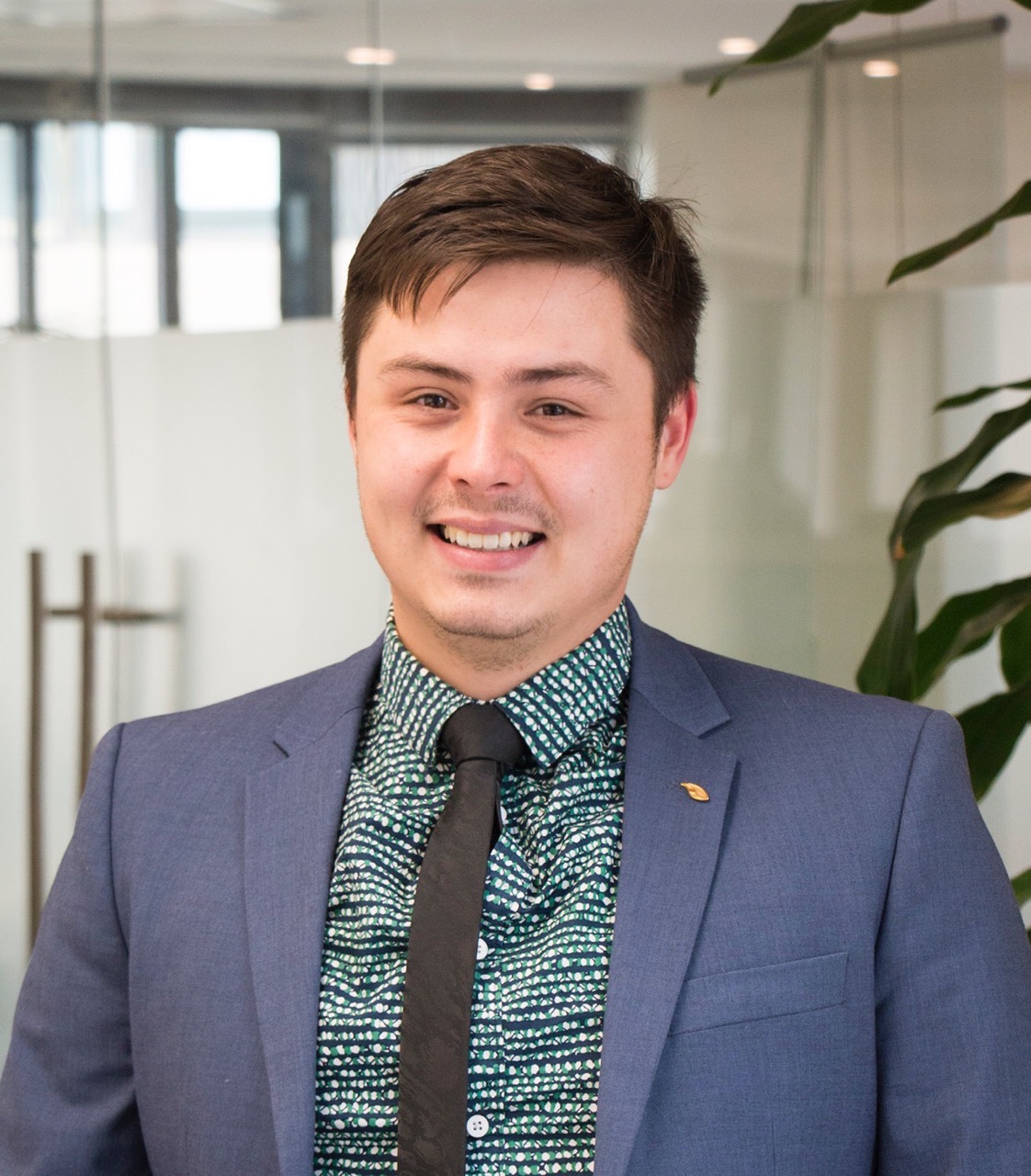
First Nations Rainbow and the 78ers recently spoke out against the police violence incident that occurred after the huge Black Lives Matter rally in Sydney.
Ricky, you were part of the protest march that day. What are your thoughts on the way it was policed?
The rally was a really intense and quite confronting situation. As we started to march – just after finding out that they’d made the protest legal again – there were police lined up on every corner.
Not one of them was smiling. Not one of them looked like they understood or respected what we were standing for. They were obviously just doing their jobs, which involved staring us down.
The tensions between First Nations people and police have existed for a long time. It seems every time we take a step forward, there are then stories that bring us back to reality.
The systemic racism and injustice that we, as First Nations people, face in this country is ongoing. And while there have been improvements, there’s a long way to go.
This was evident in the way people were treated during the rally. It felt like it was an inconvenience, not only for police, but for a lot of the people who were against us holding a protest in the first place.
A lot of commentators said that we were being disrespectful to the rest of the community by gathering during a pandemic. But they just failed to realise the significance that protest has in our First Nations past.
We’ve suffered oppression for more than 200 years. And protest is how we find our voice. So, it was incredibly disappointing that we saw protesters treated in such a way.
And there was the police violence incident that happened at Central following the peaceful protest. What happened there? And what are your thoughts on it?
We all walked down from Town Hall to Central Station. Then, police cornered some protesters in Central Station following the rally. I wasn’t there, but I certainly saw the footage.
They were pepper sprayed and treated like crap. It was disgusting. It was directly following the rally.
It was disappointing to have seen so many people asking for Australia to do a better job, and yet, at the same time, you see the police treating other people with violence following their support of the rally.
As you mentioned, it was a massive turn out, with tens of thousands there. And there were other rallies around the country. What message would you say this sent?
It said that there are many people who stand in solidarity with us, here in the heart of Sydney, as well as many other places around Australia.
It was incredibly uplifting to see so many non-Indigenous faces standing in unison with us protesting the terrible things that not only happened in the States but also in our own backyard.
Following the killing of George Floyd in the US, global attention has been focused on police brutality towards people of colour.
But, despite this, there have been a number of incidents where local police have continued to act violently towards First Nations people.
A 16-year-old boy was thrown face first onto the ground in one incident, while another involved a man being tasered in the face.
How do you explain police officers continuing to act in this manner, while, at the same time, there’s been such an outcry against these actions?
If anything, it’s a symptom of the systematic racism in this country, and the attitudes that some people have towards people of colour.
And at the end of the day, it shows complete disregard towards the reasons why we were marching.
It felt like there were people out there that didn’t care about why we were marching. They didn’t care about what we had to say. They didn’t value us or treat us like humans.
Those situations are not isolated. We were marching over the now 438 Aboriginal and Torres Strait Islander people that have died in custody since 1991.
We had a Royal Commission into this that we’re only now starting to talk about again.
It has continued on. And this rally helped us to focus attention back on to the terrible situation that First Nations people have endured at the hands of police.
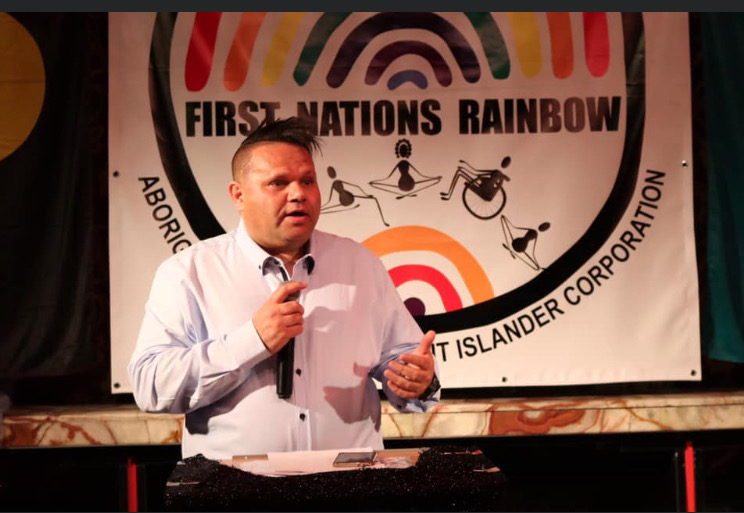
First Nations Rainbow co-founder Russell Weston has raised the point that Aboriginal people can face discrimination from within the LGBTIQ community as well.
As a queer Gumbaynggirr man, how do you account for and deal with this prejudice?
As First Nations people, we experience racism full stop. That’s whether it’s from the mainstream, or from within our own community.
Sometimes being part of the LGBTIQA+ community, particularly in Sydney, can be really confronting.
There are these biases that persist within general society, that, at the same time, exist within our minority community. And it’s just as hurtful.
We’ve had people like Casey Conway who has come out and publicly shamed the treatment he has received on dating apps, for example.
You just get these comments from time to time that people say or joke about. And they disregard the hurt that we’ve felt for 250 years now at the hands of those that have colonised and invaded us.
It’s hard to see people who have themselves experienced discrimination – and understand that part of your story – still inflict that pain upon you.
You’re the co-chair of First Nations Rainbow, which was founded in July 2018. What would you say the group is all about?
First Nations Rainbow is really about supporting Aboriginal and Torres Strait Islander members of the LGBTIQA+ community.
A lot of our members don’t come from Sydney. I don’t come from Sydney. I grew up in Bowraville: a small country town.
A lot of us come from towns without gay communities, so we come to Sydney. And it can be really confronting and difficult to do.
We have to leave country to come. And then we have to experience what community life is like here and feel safe and be able to express ourselves.
We look to find a community and it’s so hard to do that. So, First Nations Rainbow was formed to bring these people together and celebrate our identities as queer First Nations people.
It allows us to be able to have a yarn together, as well as celebrate things like NAIDOC week and Reconciliation week in our own way.
We have a team of volunteers that are looking into everything from ensuring that we have a place where we can go for cultural safety and have people that we can talk to.
We distribute resources, so our members can see what’s available for them. And we partner with places like the City of Sydney that have inclusive events.
We really just try to promote the voices of our diverse community.
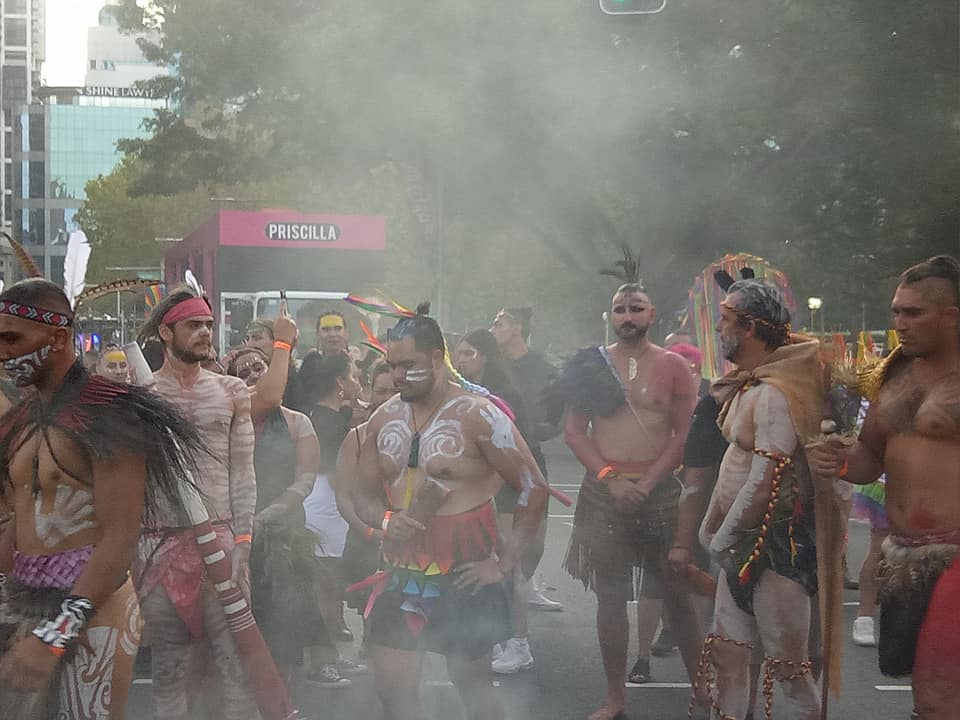
And lastly, the Black Lives Matter uprisings in the United States have led to a groundswell of support for First Nations justice over here, especially when it comes to the Stop Aboriginal Deaths in Custody movement.
Ricky, what do you hope comes out of this current focus? And how do you foresee meaningful change coming about?
We can always be hopeful. And I think that’s what gets us by at the end of the day.
It was uplifting to be standing around tens of thousands of people who were all protesting to bring attention to the treatment of First Nations people in custody and at the hands of police.
If we want to see substantial change, it requires everybody to do their bit.
We need to check our own behaviour, so as to ensure that we’re being inclusive, and that we’re cognisant of the things we say around people, because, in some way, that’s something we all struggle with.
It’s important that if this behaviour continues to happen that we rally around this again.
And it’s important that we make our views well known to our leaders, because, at the end of the day, our elected representatives are the people who are responsible for legislative change and reforming the police.
Certainly, we have to make sure our views heard by those that we elect into government, and we have to vote consciously when the time comes.


